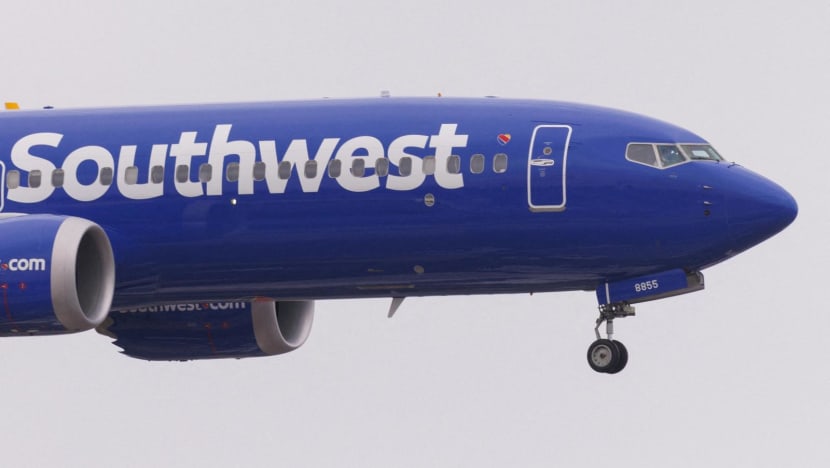Southwest flight takeoff cancelled after crew mistook Orlando taxiway for runway

Southwest airline pilots approach to land at San Diego International airport in San Diego, California, United States, on May 18, 2023. (File photo: Reuters/Mike Blake)
WASHINGTON: A Southwest Airlines flight aborted takeoff at Orlando Airport on Thursday (Mar 20) after it mistakenly began to depart on a taxiway rather than the runway, the latest in a series of recent incidents that have raised concerns about United States aviation safety.
An air traffic controller at the Florida airport cancelled the takeoff clearance for Southwest Flight 3278 at around 9.30am (9.30pm, Singapore time) after the aircraft began its takeoff roll on a taxiway that runs parallel to the runway, the Federal Aviation Administration (FAA) said.
Taxiways are paths used by pilots to move the aircraft between the terminal and the runway.
Southwest said the Boeing 737-800 stopped safely on the taxiway, returned to the gate and no injuries were reported. The National Transportation Safety Board and FAA both said they are investigating the incident.
Southwest said it is engaged with the FAA to understand the circumstances of the event and accommodated customers on another aircraft to their destination.
The FAA in December completed a safety review of Southwest after a series of incidents, including a flight in July that flew at a very low altitude over Tampa Bay and one last April that came within about 122m of the ocean off Hawaii.
On Wednesday, the FAA said it would install enhanced safety technology at 74 airports by the end of 2026 to help detect runway incursions.
Transportation Secretary Sean Duffy said on Wednesday that he plans to announce in the next few days a plan to overhaul the US air traffic control system to replace ageing technologies.
A fatal Army helicopter and American Airlines regional jet collision on Jan 29 that killed 67 people near Reagan Washington National Airport rekindled concerns about US aviation safety.
The FAA said in October that it was opening an audit into runway incursion risks at the 45 busiest US airports.
Over the last two years, there have been a series of troubling near-miss incidents that have highlighted the strain on understaffed air traffic control operations.
A persistent shortage of controllers has delayed flights and, at many facilities, controllers are working mandatory overtime and six-day weeks to cover shifts.













